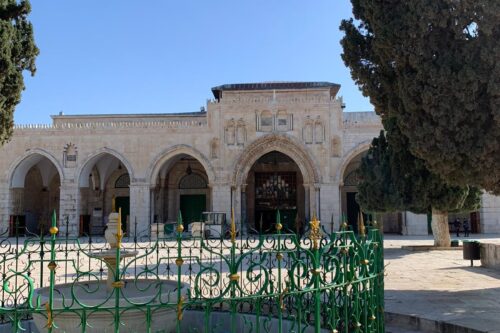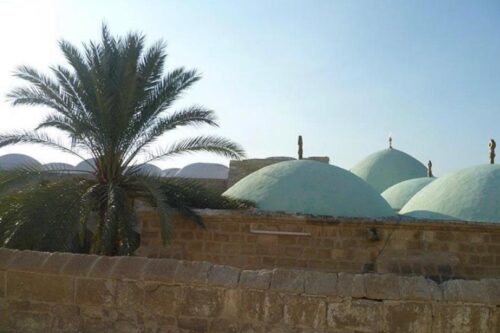Palestinian refugees and the 2006 Israel-Lebanon war

As we mark the anniversary of the 2006 Israel-Lebanon war, it’s vital to remember the plight of Palestinian refugees who were caught between the conflict’s violence and its lingering trauma.
At the time, around 300,000 Palestinian refugees – whose families were originally forced out of Palestine in 1948 – found themselves bearing fresh wounds when Israel bombed Lebanon for 34 days from July to August 2006. According to UN and humanitarian records, the war killed approximately 1,200 Lebanese and 165 Israelis, destroyed or damaged some 6,000 homes, and displaced nearly one million people, including hundreds of thousands of Palestinian refugees who had lived in the camps for decades.
For Palestinians in Lebanon – residing in 16 official UNRWA camps – the war was a double injustice. Already marginalised and denied basic rights, they once again faced loss of homes, infrastructure, education, and livelihood. Facilities in camps such as Beddawi and Nahr al-Bared were knocked out, schools were shelled, and hundreds were made homeless a second time, their fragile existence shattered once more.
Echoes of 2006 in today’s conflict
Since October 2023, Israel has been relentlessly bombing and shelling southern Lebanon, escalating tensions with the Lebanese military and militia, and bringing the country to the brink of another full-scale war.
As well as its bombardment and invasion of Gaza, Israel launched sustained airstrikes and artillery shelling on Lebanon, drone surveillance over Beirut, and attacks on civilian infrastructure. By mid-2024, Israel’s bombardment had displaced over 100,000 Lebanese civilians and caused extensive damage to homes, healthcare centres, and schools in southern towns.
In September 2024, Israel launched its largest assault yet, deploying personnel in a coordinated ground invasion across Lebanon’s southern frontier. This marked a dramatic shift in the scope of Israeli operations, raising fears of a repeat of the 2006 war. The invasion resulted in the displacement of over 1.2 million people.
While Israel agreed to a ceasefire, its airstrikes did not stop. In early June 2025 alone, Israeli airstrikes struck southern suburbs of Beirut and villages like Ain Qana – the fourth wave of such strikes since the truce, igniting widespread fear and upending already fragile civilian infrastructure.
These attacks – in violation of ceasefire agreements – have killed dozens, sparked fires, and pushed the Lebanese army to warn that further strikes could collapse the fragile ceasefire coordination mechanism.
Israel’s leadership has declared that “there will be no calm in Beirut” until Hezbollah is disarmed, making clear their readiness for prolonged conflict. In this climate, Palestinian refugees in Lebanon once again find themselves trapped in the crossfire – displaced, endangered, and forgotten.
Why Palestinian refugees must not be forgotten
Palestinian refugees in Lebanon remain among the most vulnerable in this cycle of violence. Displacement in 2006 stripped them of the limited gains they had made since 1948. The repeated bombings, infrastructure breakdowns, and looming spectre of further raids deny them safety or stability.
Today, over 450,000 Palestinian refugees live in Lebanon. But their plight is compounded by the permanent state of precariousness in Lebanese law, where they remain excluded from citizenship, restricted in employment, and marginalised in society.
On this anniversary, we cannot forget how Palestinian lives in Lebanon – and across Lebanon – continue to be collateral victims of geopolitical wars. Constitutional inaction, weapons proliferation, and the cyclical pattern of violence keep them in a state of suspended exile.
As Israel carries out further drone strikes and air raids, it is not only targeting Hezbollah – it is reopening old wounds in Palestinian communities whose most basic rights to safety, housing, and dignity remain unfulfilled.
To honour their memory and build a just future, we must demand an end to military cycles, full rehabilitation of refugee communities, inclusive rights in host countries, and genuine accountability for all parties.
Until Palestinian refugees can live in dignity – whether in Gaza, Lebanon, or abroad – the promise of a lasting peace will remain hollow.
#PalestineFacts
Calculate your Zakat
Confused about how to calculate your Zakat? Try our simple-to-use calculator

![A poster remembering Hind Rajab, seen in Washington DC on October 20, 2024 [Diane Krauthamer / Flickr]](https://interpal.charity/wp-content/uploads/2025/01/54086147753_5652c5385a_6k-1-500x333.jpg)
![A young man and his mother drive a donkey cart through the streets of Jabalia camp, Gaza on June 10, 2025 [Mohammed Ibrahim / Unsplash]](https://interpal.charity/wp-content/uploads/2025/09/mohammed-ibrahim-erVMX5cTmc-unsplash-1-500x333.jpg)
![Protestors in London holding the sign "I oppose Genocide. I support Palestine Action" during a mass civil disobedience sit-in on August 9, 2025. Support for Palestine Action was proscribed by the UK's Labour government in July 2025 [HudaAmmori / X]](https://interpal.charity/wp-content/uploads/2025/08/Gx6QGCEaEAAuMC7-e1754743048391-500x333.jpg)

